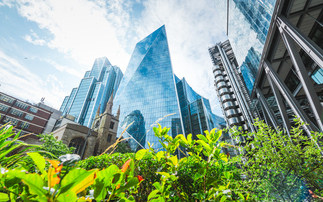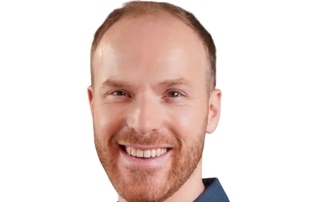UN Environment's Erik Solheim reflects on how to reframe corporate social responsibility and the importance of the SDGs for the business community
When the Sustainable Development Goals (SDGs) were adopted three years ago, the United Nations made it clear to the world: We mean business. The time for private sector entities to lean back and watch as national governments and international organisations worked to implement ambitious development targets is long behind us. We are raising the bar of what is expected of the private sector on the road to a sustainable future.
The world is more connected than ever and individuals, policymakers, and businesses alike are all expected to participate in the global social movements that define our time. Whether it be beating plastic pollution, standing up for women's rights, acting against child labour, championing civil rights, or reducing emissions: action around these values increasingly falls upon our collective shoulders, with the internet serving as our coach and referee.
Within the global narrative around Corporate Social Responsibility, consumers not only expect businesses to satisfy their purchasing needs, but also to be aligned with their personal goals and societal values. If the overwhelming media attention - and the spike in sales - after Nike's recent 'Just Do It' campaign featuring Colin Kaepernick is any indicator, private sector giants are increasingly aware that standing for strong social values is simply good business.
It is why companies like Starbucks, McDonalds, and Evian are fighting against plastic pollution by limiting the production and distribution of their single-use plastics and scaling up recycling efforts. It is also why an ever-increasing number of car manufacturers are jumping on the chance to include sleek electric vehicles in their fleet, and why cosmetic brands forego the use of plastic microbeads in their skincare lines. Making sustainability a priority is not simply a box that needs to be ticked. It is a sound and worthy investment for any company to make.
This philosophy especially applies when it comes to the Sustainable Development Goals, those 17 undebatable targets for a better, healthier and more equal world. Positioning a business firmly behind universal social and environmental goals such as 'No Poverty', 'Clean Water and Sanitation', 'Climate Action', and protecting 'Life Below Water' and 'On Land', sends a powerful message to consumers: we care as much as you do.
Embracing the SDG's as a core value can lift a brand up, drive investments and forge stronger long-term relationships with the national governments looking to implement these goals for the benefit of their people.
The private sector is also uniquely situated to assist those governments as they set out to tackle some of the world's most pressing challenges, without having to compromise any of their own growth projections. By honing in on specific development targets, and applying sound business strategies to determine exactly where the biggest opportunities for change can be found, private sector players can translate urgent development needs into innovative business solutions.
And not for nothing: it is estimated that the successful implementation of these goals could unlock $12tr in opportunities for business by 2030. With the help of the agenda and roadmap set out by the United Nations and its member states, businesses can position themselves right in the middle of emerging markets, offering real solutions for real problems. Stepping up with a strategy for our common future, without compromising on their bottom line. And staying one step ahead of policy changes and new environmental rules that are likely to be implemented as governments seek to align their economies with these development goals.
Water crises, food security, extreme weather events and other effects of climate change are among the most immediate concerns for people around the world. At UN Environment, we work to address these concerns every single day. With governments, with businesses, and with individuals.
The reality is that these issues are of such magnitude that they require input by all of us to be properly addressed. Because without everyone's involvement, not only the current burden of these insecurities but also the inevitable consequences will be ours to share. This doesn't exclude businesses, even the wealthiest among them. After all, a thriving marketplace can only exist in a healthy, stable and sustainable economy, and embracing these 17 global goals is therefore simply… good business.
Erik Solheim is executive director of UN Environment







